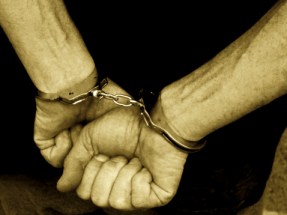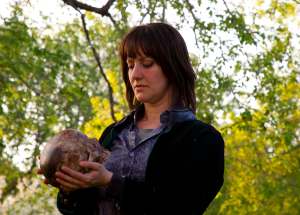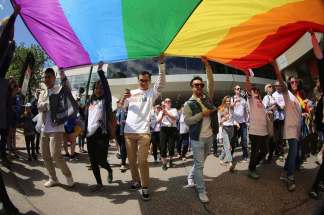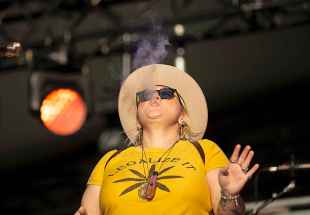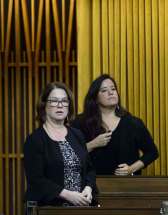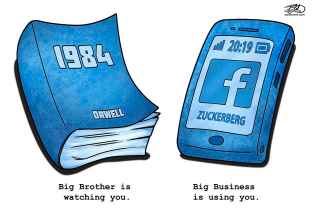Welcoming colour to a colourful event Pride Winnipeg seeks more inclusive festival in honour of early pioneers
Read this article for free:
or
Already have an account? Log in here »
To continue reading, please subscribe:
Monthly Digital Subscription
$0 for the first 4 weeks*
- Enjoy unlimited reading on winnipegfreepress.com
- Read the E-Edition, our digital replica newspaper
- Access News Break, our award-winning app
- Play interactive puzzles
*No charge for 4 weeks then price increases to the regular rate of $19.00 plus GST every four weeks. Offer available to new and qualified returning subscribers only. Cancel any time.
Monthly Digital Subscription
$4.75/week*
- Enjoy unlimited reading on winnipegfreepress.com
- Read the E-Edition, our digital replica newspaper
- Access News Break, our award-winning app
- Play interactive puzzles
*Billed as $19 plus GST every four weeks. Cancel any time.
To continue reading, please subscribe:
Add Free Press access to your Brandon Sun subscription for only an additional
$1 for the first 4 weeks*
*Your next subscription payment will increase by $1.00 and you will be charged $16.99 plus GST for four weeks. After four weeks, your payment will increase to $23.99 plus GST every four weeks.
Read unlimited articles for free today:
or
Already have an account? Log in here »
Hey there, time traveller!
This article was published 31/05/2019 (2390 days ago), so information in it may no longer be current.
In the early morning hours of June 28, 1969, police raided the Stonewall Inn, a gay bar in Manhattan’s Greenwich Village.
Its patrons, among the most marginalized people in all of New York City, risked everything and rose up in protest. The Stonewall Riots, also known as the Stonewall Uprising, is widely considered the birth of the gay liberation movement. And it was LGBTTQ* people of colour who were at the forefront of the fight.
Pride Winnipeg events
SATURDAY
9:30 a.m.: Winnipeg Frontrunners Pride Run, The Forks
10 a.m.: Trans March, Manitoba legislature
Noon: Show Your Pride Art Event, Central Park
1 p.m.: Two-Spirit Powwow, The Forks
Noon-7 p.m.: Festival at The Forks, noon-7 p.m.
SATURDAY
9:30 a.m.: Winnipeg Frontrunners Pride Run, The Forks
10 a.m.: Trans March, Manitoba legislature
Noon: Show Your Pride Art Event, Central Park
1 p.m.: Two-Spirit Powwow, The Forks
Noon-7 p.m.: Festival at The Forks, noon-7 p.m.
SUNDAY
8 a.m.: Pride Pancake Breakfast Fundraiser, Club 200
9:30 a.m.: Pride Sunday Worship Service, Augustine United Church
10 a.m.: Pride Rally, Manitoba legislature
11 a.m.: Parade. Begins at the legislature, proceeds north on Memorial Boulevard, east on Portage to Main, and ending at The Forks.
1 p.m.: Sacred fire, The Forks Oodena Circle
In honour of the 50th anniversary of the Stonewall Riots, Pride Winnipeg’s theme for 2019’s festival and parade, which takes place this weekend, is Pride of Colour.
“Prides across the globe believe that the reason Pride exists is because of the Stonewall Riots and we owe, big time, to all these amazing activists, especially the trans people of colour that were involved in the riots that has given us the liberty to celebrate our identity with peace and prosperity,” says Muhammad Ahsan, the president of Pride Winnipeg.
Honouring a landmark moment in queer history isn’t the only reason behind the theme.
“While Pride has been happening for more than three decades in Winnipeg, we have still not reached the point where two-spirit, Indigenous, black and other community members of colour can say they also feel included,” Ahsan says. “That has been a common criticism of, not just of Pride Winnipeg, but Prides across Canada and North America, that we’ve not done enough. For me personally, it’s important we create safe spaces where people of colour and other marginalized identities feel they can also belong.”
Karen Sharma is an organizer with Queer People of Colour Winnipeg, a collective that does exactly that — it creates safer spaces where queer and trans people of colour can feel “seen, valued and inspired throughout the year,” she says. QPOC Winnipeg, which is independent from Pride, hosts everything from panels to dance parties.
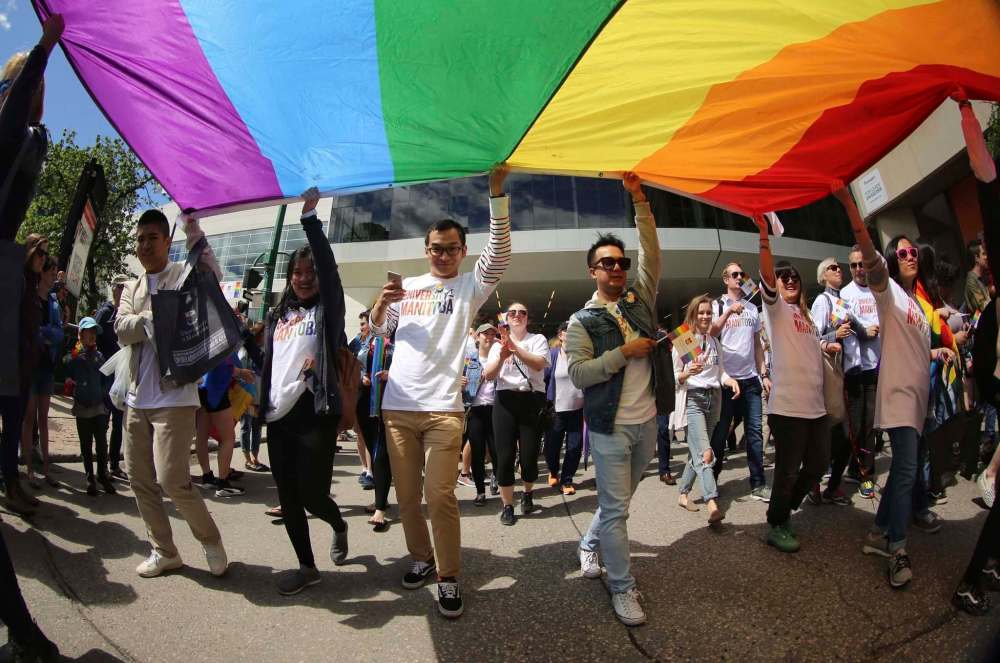
When talking about building more inclusive, safe spaces, it’s helpful to use the framework of intersectionality, a concept coined by the black feminist scholar Kimberlé Williams Crenshaw in 1989.
“Intersectionality is about thinking about the unique circumstances of oppression when they intersect at multiple forms of identity,” Sharma explains. “So, for us, when it comes to any and all events — and that’s in part why we exist — it is about recognizing that queer people of colour, so two-spirit, black, Indigenous, queer and trans people of colour do experience homophobia, transphobia and transmisogyny in unique ways that are often compounded because of the dynamics of racism, settler colonialism and anti-black and anti-Indigenous racism. When it comes to Pride, it’s another site in which our community has, in the past, tended to experience exclusion or the kinds of barriers we face haven’t been considered in the design of Pride programming. It’s an issue that’s been highlighted across Canada.”
An intersectional Pride is about more than ensuring two-spirit, black, Indigenous, queer and trans people of colour feel welcome at the festival, Sharma says. It’s also about ensuring they have a seat at the table when it comes to decision making and the design of the programming. “I know there’s been a lot of effort in terms of this Pride’s mainstage to think about placing people of colour in the forefront,” she says.

Ahsan points to Pride’s collaboration with Manitoba’s two-spirit community as another example of how Pride is putting its theme into practice. Two-spirit is an Indigenous term for someone with both feminine and masculine spirits.
“We’ve been working very closely with the two-spirit community for the past four or five years, collaborating with them to have a two-spirit powwow as part of Pride’s celebrations,” Ahsan says. “We were the first North American Pride to start that (in 2017, for the 30th anniversary of Pride), and Prides across North America have learned from our experience. And the most important part of that experience is we’ve never told the two-spirit community what to do. We ask them how we can assist them and provide them any space or resources, and then we step aside. It’s their event.”
This year’s grand marshal is Peetanacoot Nenakawekapo, an Anishinaabe two-spirit trans woman who attended the first Pride Parade in Winnipeg in 1987.
‘We’ve been working very closely with the two-spirit community for the past four or five years, collaborating with them to have a two-spirit powwow as part of Pride’s celebrations’– Muhammad Ahsan
Of course, it’s almost impossible to talk about Pride and people of colour without talking about the issue of uniformed police officers. In 2016, the Toronto chapter of the Black Lives Matter movement protested the Pride Parade in that city. One of BLM’s key demands was the exclusion of uniformed police officers from Pride, which has been a heated issue at Pride events across North America.
Here in Winnipeg, Ahsan clarifies that police officers are welcome at Pride, just not in uniform, unless they are on duty.
“If they are not on duty, there’s no point,” he says. “I don’t see doctors or surgeons in scrubs. Especially this year, when we’re talking about people of colour, many racialized community members have had difficult experiences with police within Winnipeg and Canada. We’re not trying to exclude anyone. We’re trying to be safe and inclusive for people who may not find that safety and inclusion anywhere else.”
When asked why it’s important events such as Pride focus on the most marginalized members of the LGBTTQ* community, Sharma circles back to the Stonewall Riots.‘I think it’s really important to remember that queer resistance has always been as a result of the labour of people of colour’–Karen Sharma
“We don’t always talk about this, but Stonewall was really the result of the actions of, largely, trans women of colour and trans and generally trans and queer people of colour — Marsha P. Johnson, Sylvia Rivera, Stormé DeLarverie — who were some of the first people to throw bricks, shot glasses, whatever they could get their hands on in protest against police violence,” Sharma says.
“I think it’s really important to remember that queer resistance has always been as a result of the labour of people of colour. It’s important that Pride includes the voices and experiences of our two-spirit, black, Indigenous, trans and queer people of colour communities because they’ve always been at the forefront of resisting. The labour we’re celebrating was made possible because of us, and our ancestors.”
jen.zoratti@freepress.mb.ca
Twitter: @JenZoratti
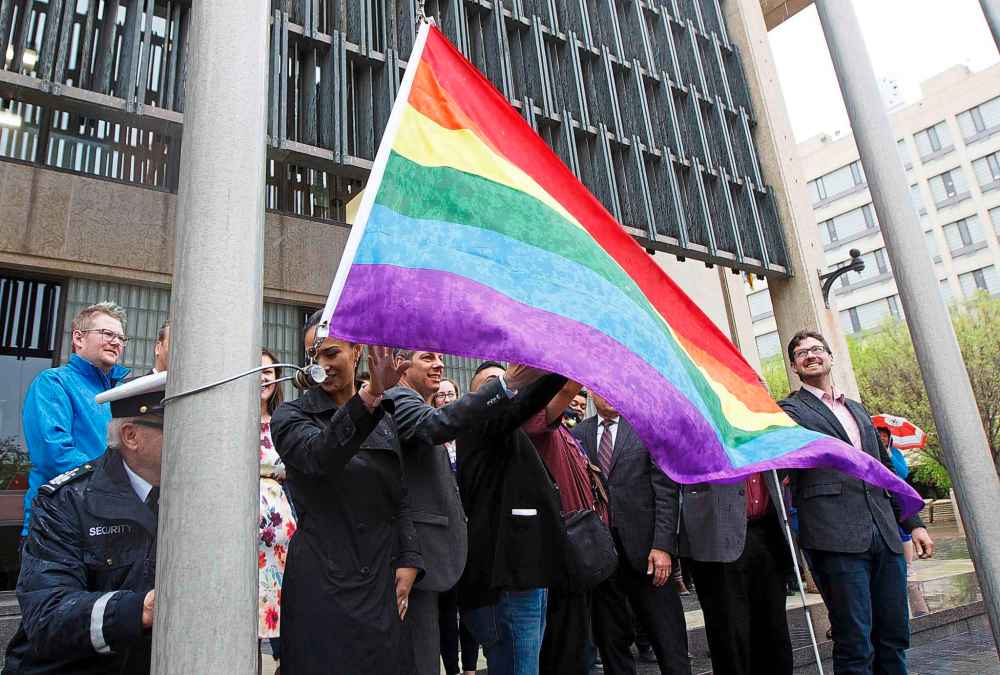

Jen Zoratti is a Winnipeg Free Press columnist and author of the newsletter, NEXT, a weekly look towards a post-pandemic future.
Our newsroom depends on a growing audience of readers to power our journalism. If you are not a paid reader, please consider becoming a subscriber.
Our newsroom depends on its audience of readers to power our journalism. Thank you for your support.


